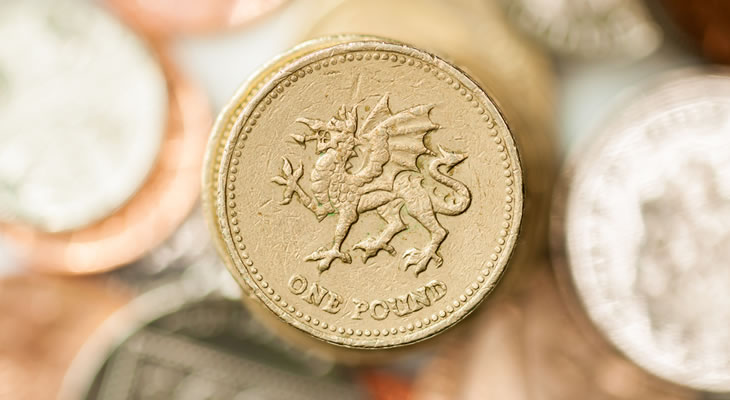- Pound Euro Hits 1.1007 – Euro Pound Slides to 0.9082
- Eurozone Inflation on the Horizon – What can we Expect for this Pairing?
- UK Wage Growth and Earnings Prove Positive – Sterling Bolstered in the Meantime
The Pound Euro exchange rate climbed today after the release of the UK’s wage and employment data.
Average earnings in the UK saw a slight jump, climbing from 2.0% to 2.1% in June, significantly higher than the 1.9% forecast.
In other good news for the Pound, the Office for National Statistics reported that unemployment rates in the UK dropped to their lowest levels in 42 years, with unemployment falling by some 57,000 in the three months to June.
The 4.4% unemployment rate assisted in bolstering demand for the Pound, but the wage growth was the most significant mover, as weak wage growth had, so far, been one of the main determining factors preventing rate hikes from the Bank of England (BoE).
Investors set Sights on Eurozone Inflation, How Will GBP EUR be Affected?
Near-term Euro movements will be predominantly determined by the release of tomorrow’s Eurozone inflation data. Indeed, markets are currently waiting with baited breath to see exactly how close to the ECB’s inflation target the Eurozone will manage, as the closer it comes, the more likely the central bank will be to begin tightening easing towards the close of the year.
The Eurozone’s inflation figures are currently predicted to demonstrate a 1.3% rise in annual inflation, (consistent with previous), but a -0.5% drop month-on-month. Such results would be far from the ECB’s 2% target figure.
In addition to the inflation figures, markets will also be watching for comments from ECB officials to garner any insight into their sentiment, as it could provide the key to predicting the likelihood of the central bank making moves on monetary policy.
UK Retail Sales Forecast to have dropped in July, GBP EUR Liable to come under Pressure
Tomorrow will also feature the release of the UK’s retail sales figures – the measure of change in the volume of sales by retailers within the United Kingdom.
Currently, July’s year-on-year figure is predicted to drop from 3.0% to 1.6%, whilst the month-on-month figure is expected to drop from 0.6% previous to 0.4%, both notable decreases.
Should this occur then GBP EUR could indeed come under some more pressure, but there are some that assert that this pairing could be due to reverse some of its recent losses.
Paul Hollingsworth at Capital Economics, asserted:
‘In contrast to a number of other forecasters who have suggested that the pound could reach parity with the euro before the end of the year, we think that there are a number of reasons for the pound to reverse some of its recent losses against the euro […] Indeed, we think that the official data should start to reflect the more optimistic business surveys which point to quarterly growth of about 0.5%’ (referring to UK GDP).
In this sense the outlook remains mixed, but there remains the possibility of volatility for the Pound in the face of continued Brexit negotiations.


Comments are closed.